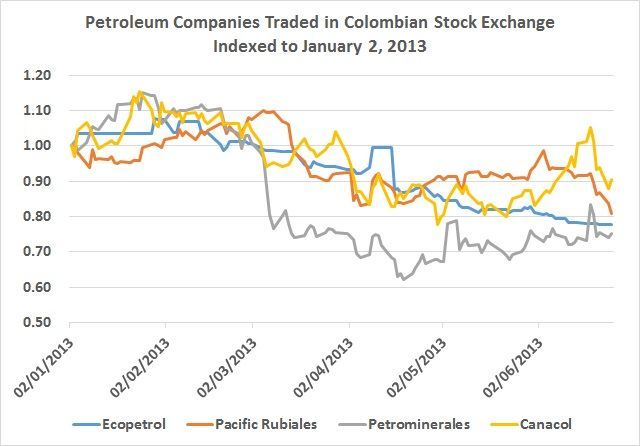Counts were down for the third week in a row to 23 below recent and long-term averages. This was a much lighter than normal week for non-armed forces reported/guerrilla-initiated incidents. Our 4-week Moving Average incident count was down to 31.3 incidents (down for the sixth straight week) but the 52 week average was up slightly again to 39.2 incidents per week.
Protests and blockades in Paz de Ariporo, one of several hotspots this week that have grabbed headlines, are now being lifted after community leaders and Bicentennial Pipeline officials signed an agreement that would improve the community’s roads.
The 10 demands and subsequent additions by the Farc last week made a big splash and Colombia’s major political figures left no doubt that these new demands, which greatly widened the agreed agenda, were not on the table for discussion.
Officials charged with managing Colombia’s sea commerce and resources met with oil companies performing offshore exploration to discuss regulations surrounding the activities.

The share price of Pacific Rubiales, Canacol and Petrominerales lead the Colombian Stock Market (BVC) with some of the most undervalued share prices, which local analysts say could present opportunities for investors despite the 11.9% drop in the stock’s index IGBC in 2013.
Ecopetrol’s Coveñas terminal is the first among members of the Regional Association of Petroleum, Gas and Biofuel Companies in Latin America and the Caribbean (Arpel) to receive a cross check audit as part of an integration process.